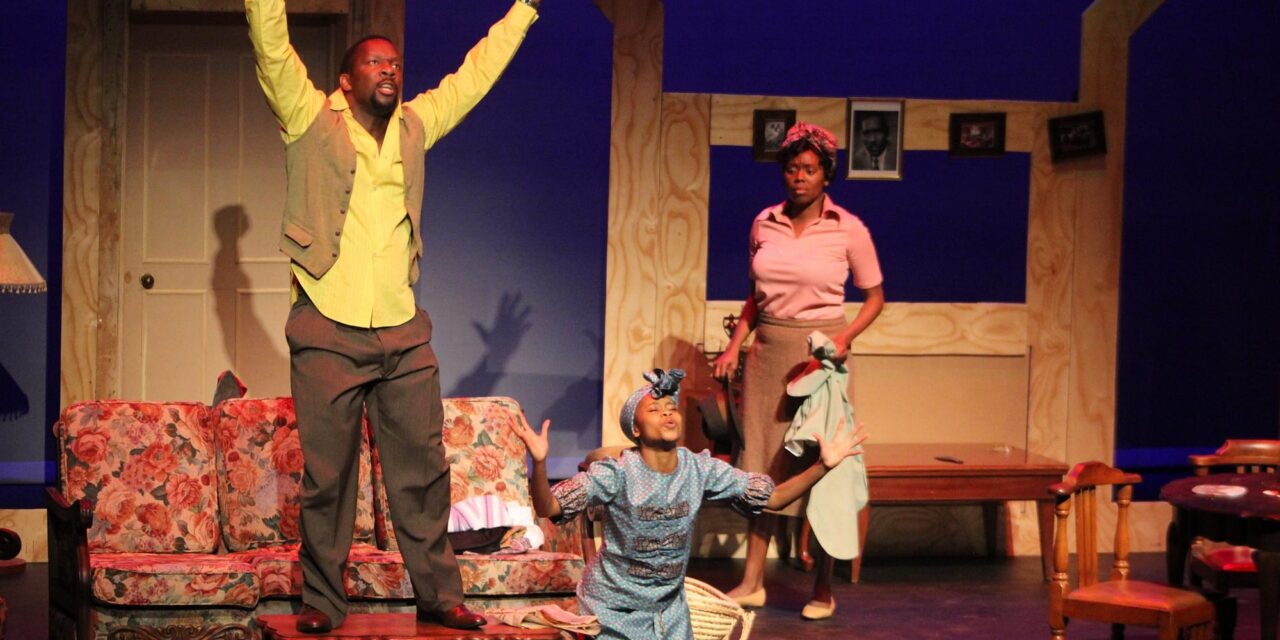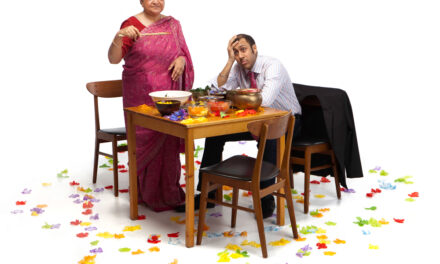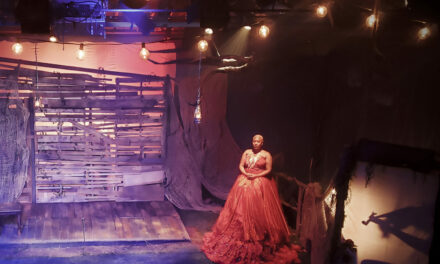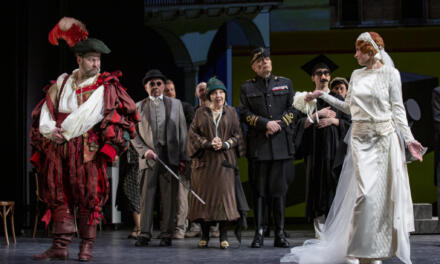Directed by South African theatre and film industry stalwart Dr. Jerry Mofokeng wa Makhetha, A Raisin in the Sun, written by famed American playwright Lorraine Hansberry, is a classic piece of theatre which has been performed to rave reviews and critical acclaim all over the world.
As with any rendition of a play as famous as A Raisin in the Sun, the trick with the production is to find a way to make it fresh, relevant, and searing, just as it was when it was first published and produced on Broadway in 1959.
It is a play many audience members are familiar with, having either read it as a high school set book or been fortunate to see it as part of one’s academic studies or as a fully-fledged professional production.
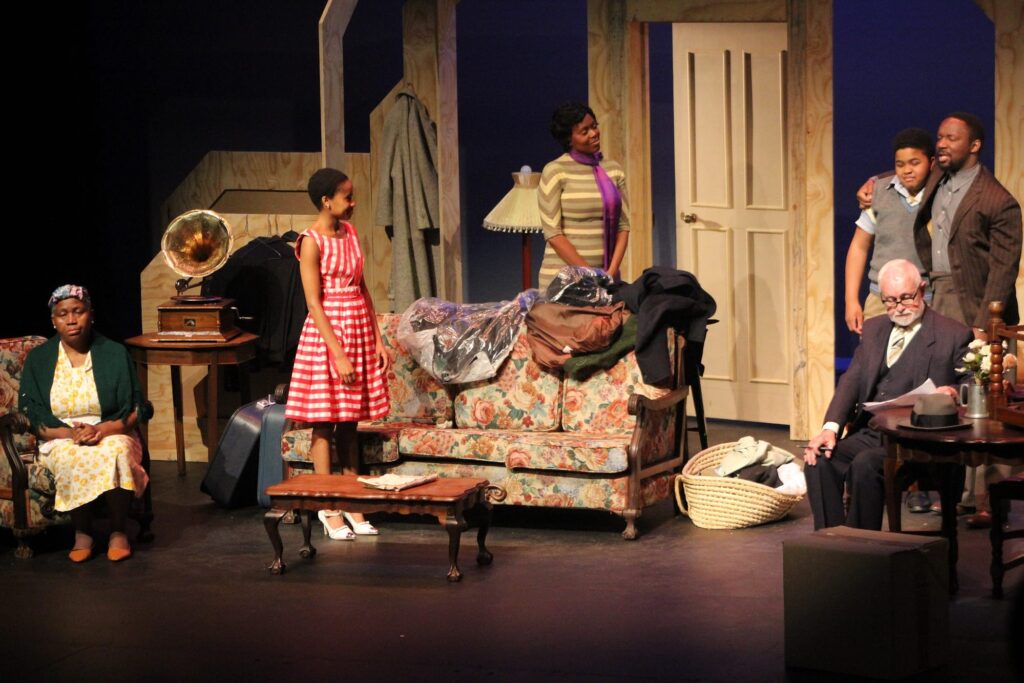
A Raisin In The Sun. Directed by Dr. Jerry Mofokeng wa Makhetha at Soweto Theatre. Photo credit: Tumi Moloi.
The refreshing thing that vastly experienced director and actor Dr. Jerry Mofokeng wa Makhetha does is pick a world class cast who are all more than equipped to bring to life these characters who are quintessentially American, but who need to find resonance and connection with a wholly South African audience. Black American accent training would have been one of the key tasks the cast had to tackle and they deliver impeccably, in addition to ensuring that any “South Africanisms” do not accidentally permeate or overshadow their characters and thereby distract the audience from experiencing this truly magical theatrical experience.
The themes which A Raisin in the Sun focuses on are timeless, and their relevance to the South African experience more than twenty-five years into democracy are not only stark but un-ignorable. This is where the power of this timeless classic lies, that it speaks to the global human condition which in this instance is the black American experience, but in doing so directly confronts the disillusionment of the post-apartheid South Africa as well.
In the official press release for the show, the director Dr. Jerry Mofokeng wa Makhetha says, “This is a story of hope, at a time in history when we need it most. It is a story that gives people permission to dream again. Walter, in the play, may be American, but he is as much African as Steven Biko. When you watch the play and remove the places mentioned, it is very much an African play, an African story, an African Legacy. What happens when a Walter in the Free State in the democratic South Africa has a dream to have his own house, his own company? For his son to go to his school of choice and for his wife to wear pearls?”
A Raisin in the Sun was the first play written by a black woman, Lorraine Hansberry, to be produced on Broadway, and was also the first play to be directed by a black director, Llyod Richards, something which would have been unimaginable during that time. It is a powerful and hard-hitting production, and one can see why it has been named as one of the best plays to have ever been written.
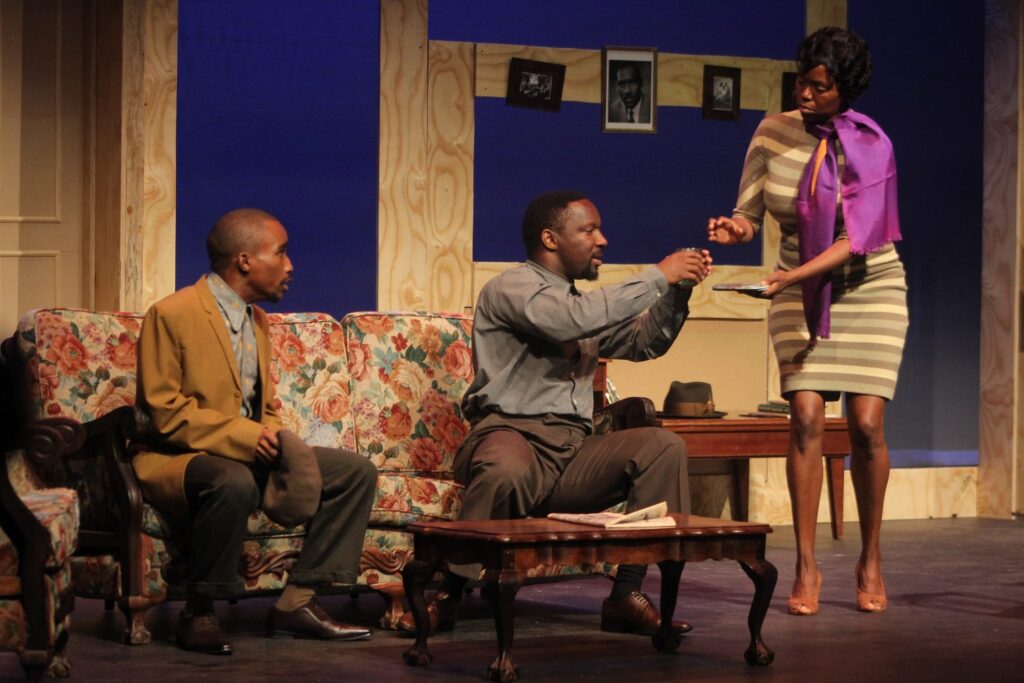
A Raisin In The Sun was produced in partnership with the United States Mission to South Africa. Photo credit: Tumi Moloi.
In the end, a play like A Raisin in the Sun is a reminder of the kind of work which still needs to be done to ensure human rights, equality, access to housing, racism and other social ills it tackles are exposed and dealt with decisively.
A Raisin In The Sun was written by Lorraine Hansberry and directed by Dr. Jerry Mofokeng wa Makhetha. It featured Keketso Semoko, Nat Ramabulana, Xolile Tshabalala, Gerben Kamper, Lucky Ndlovu, Sboniso Thombeni, N’kone Mametja and Mbuyelo Arthur Mbokota. It was on at the Soweto Theatre in Soweto from 11 – 17 September 2021.
This article was originally published by The African Theatre Magazine on October 1st, 2021, and has been reposted with permission. To read the original article, click here.
This post was written by the author in their personal capacity.The opinions expressed in this article are the author’s own and do not reflect the view of The Theatre Times, their staff or collaborators.
This post was written by Tonderai Chiyindiko.
The views expressed here belong to the author and do not necessarily reflect our views and opinions.

